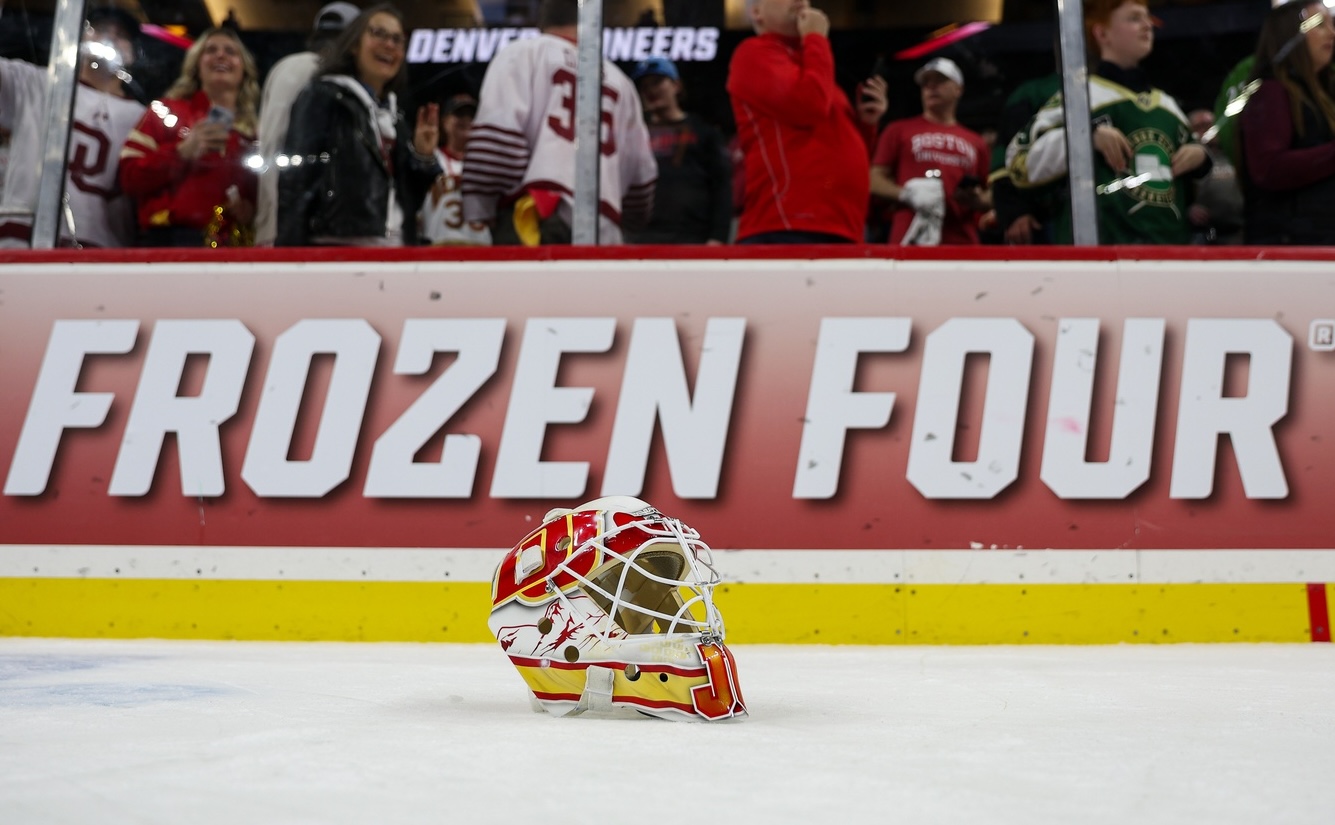The NCAA is back in court—this time, over an issue it saw coming in hockey.
Rylan Masterson, a Canadian junior hockey player, is suing the NCAA and 10 universities, alleging the governing body is violating antitrust laws by banning hockey players who have been paid in junior leagues.
If the suit succeeds, it may change the nature of the junior hockey pipeline, with players potentially eligible to play in both college and the major junior leagues. CHL players traditionally don’t get paid salaries and instead are compensated with a stipend of no more than $600 a month, according to the lawsuit.
The lawsuit was filed in the Western District of New York, which has jurisdiction over three universities named as defendants in the suit: Niagara University, Canisius University, and the Rochester Institute of Technology. Other schools named in the lawsuit include Boston College, Boston University, University of Denver, Quinnipiac University, Notre Dame, Stonehill College, and University of St. Thomas.
Masterson is 19 and currently plays for the Fort Erie Meteors of the amateur Greater Ontario Junior Hockey League. In 2022, he played in two exhibition games for the OHL’s Windsor Spitfires, which cost him his NCAA eligibility.
The suit details “the boycott,” in which the NCAA deems players who appear in the Canadian Hockey League—which includes the OHL, WSHL, and QMJHL—as ineligible. NCAA bylaws prevent college athletes from competing if they have played for a professional team.
The lawsuit points out how Olympic swimmer Katie Ledecky was financially compensated as a professional, yet she still retained her eligibility at Stanford. Ledecky was able to keep more than $100,000 in prize money from the 2016 Olympics after winning four gold medals and one silver. That came after the NCAA altered its bylaws in 2001 to allow it. Tom Willander, a first-round pick by the Vancouver Canucks in the 2023 NHL draft, was able to play professionally in Sweden and later suited up for Boston University.
Masterson’s argument is that “the boycott” hurts competition between the NCAA and CHL, which suppresses competition and results in a less competitive league. The lawsuit goes on to say how the situation forces 16-year-olds to decide whether they want to play Division I hockey at that age instead of juniors.
College hockey has always been one of the few sports where professional teams could draft a player and let them go play in college before entering their minor league system. Perhaps the closest comparison is when the Boston Celtics drafted Larry Bird in 1978, but let him play his final year at Indiana State before he joined them a year later. The NBA’s CBA has since changed to prevent that.
The “boycott” Masterson refers to has been on the NCAA’s radar recently. In 2023, it conducted a review of its bylaws and found the CHL player boycott was a legal vulnerability. Nothing changed, the lawsuit says, because the NCAA left the decision to reverse it up to the coaches, a vote never took place. The lawsuit further claims that in May, coaches had another meeting over the boycott and a committee was created to watch for possible legal issues the rule could spur.
Now Masterson is doing just that.






![[Subscription Customers Only] Jun 15, 2025; Seattle, Washington, USA; Botafogo owner John Textor inside the stadium before the match during a group stage match of the 2025 FIFA Club World Cup at Lumen Field.](https://frontofficesports.com/wp-content/uploads/2026/02/USATSI_26465842_168416386_lowres-scaled.jpg?quality=100&w=1024)
![[Subscription Customers Only] Jul 13, 2025; East Rutherford, New Jersey, USA; Chelsea FC midfielder Cole Palmer (10) celebrates winning the final of the 2025 FIFA Club World Cup at MetLife Stadium](https://frontofficesports.com/wp-content/uploads/2026/02/USATSI_26636703-scaled-e1770932227605.jpg?quality=100&w=1024)









